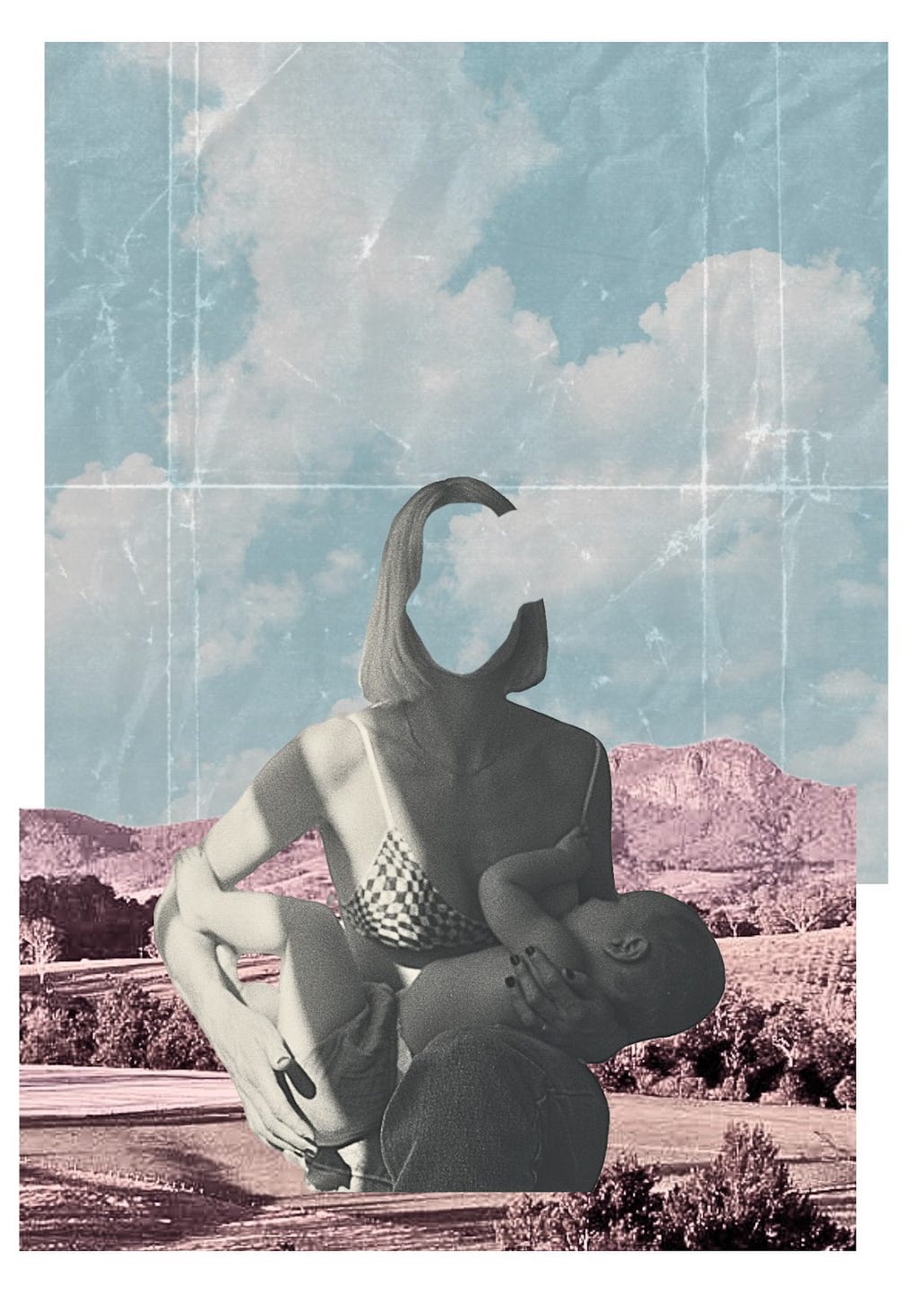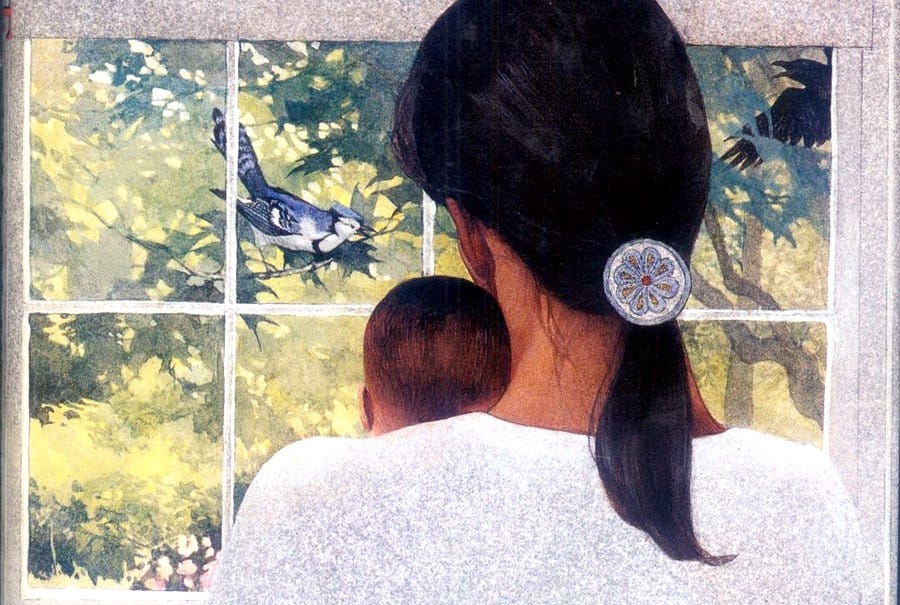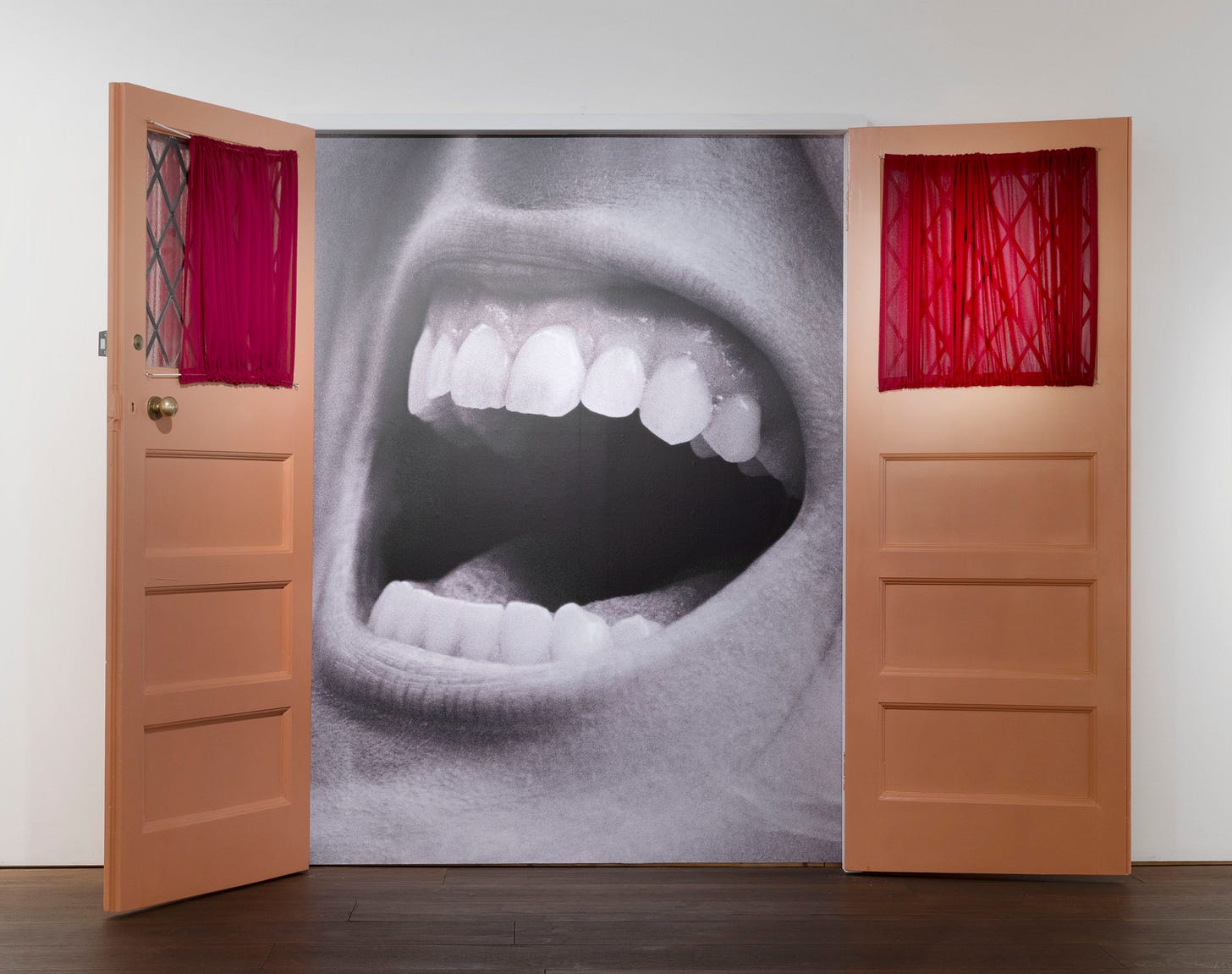Back from the brink
Where we go when we have a baby – and do we ever come back?

Hello friends,
It has been a while since I have been in touch. Since then, I have had another baby (these two things are not unrelated).
What has been on my mind as I navigate first bites, first steps and muscle memory mothering, is exploring where we go when we have a baby – and do we ever come back?
Are we not fundamentally changed by this experience, shedding the skin of who we were, to find something similar, but distinctly differently? Or, do we find ourselves again at the other end of these liminal, sleep-deprived baby days? Do we ever feel like “ourselves”?
Let’s get stuck in.
A meeting point of comfort and terror
Something that has consistently sat uneasily with me since having children is the narrative that pulls us to what was – life before kids – and the tug of what will be – life when they are older/when childcare is sorted/when things are not so chaotic.
To say that the focus, right now, is simply on being a parent felt somehow both predictable and radical, and, for me at least, brought some serious reckoning with my achievement-focused ego.
I love how artist Gabby Laurent explores how yes, it can be both:
“Domesticity is a place I want to be, and it annoys me that I even have to say that as a caveat, but it’s also a place of confinement – a meeting point of comfort and terror.”
Similarly, in her essay How millennials learned to dread motherhood, Rachel M. Cohen explores how, in in our efforts to reject unrealistic expectations around motherhood, we risk dismissing the vital work of parenting altogether. She writes:
“We can recognize that for millions of women, raising children has been a central source of identity and meaning, and we can name this without fear that it will somehow unravel decades of feminist progress, or that we’ll risk empowering “tradwives” for saying what countless people experience as wonderful and true.”
She also highlights just how dramatically the cultural messaging about parenting has changed, something I hadn’t really realised but recognised as true as I read her words:
“For at least the last decade, women my age have absorbed cultural messaging that motherhood is thankless and depleting, straining careers, health, and friendships, and destroying sex lives. Today, it’s genuinely difficult to find mainstream portrayals of moms who are not stressed to the brink, depressed, isolated, or increasingly resentful.”
I’m relieved that the unrealistic and outdated vaseline-on-the-lens image of motherhood has been replaced with something closer to reality, but gosh, is it a grim reality. To me at least, this is partly down to a shocking lack of care and support for mothers (early motherhood for first-time parents in particular can be a brutal, lonely place these days, with no “village”in sight) but also partly down to just how hard it is to articulate the more beautiful, meaningful, rich and joy-giving aspects of the experience without giving way to something that feels mawkish or twee.
Juxtaposing the mundane and the momentous

Diving into the experience is Hungarian photographer Andi Galdi Vinkos, whose book, Sorry I Gave Birth I Disappeared But Now I'm Back, explores what it is like to be a “mother of two working on borrowed time”. Her work proves that there can be creativity and meaning during those messy early days, even as you are, as she says, in “constant negotiation between their needs and yours, between what you want to do and what you actually feel capable of.”
She tells The Guardian:
“I had no idea what awaited me. How messy and how raw, how unpredictable and how out of control motherhood really was compared to the images I had in my mind from films, photos, paintings done by men.”
That last line floored me – how much of the imagery and narrative around motherhood that we ingested, especially as children, was created by men?
Learning the difference between grief and regret
Continuing on my journey to try and see things as they are, this brilliant piece by Ann Friedman resonated with me, reminding me of how obsessed I was with questions of parenthood in my 20s and early 30s, how fluid my identify felt, how momentous every choice seemed – every road a huge fork with clear, black and white, right/wrong repercussions.
Friedmand riffs on trying to get comfortable in the nuance:
Now, I wonder why my lens on the parenting question was always regret, why I never thought to frame the much-feared feeling as grief. As a sadness that is not about wanting a different outcome, but about letting go of a few tantalizing hypotheticals in order to live one flawed reality.
Grief feels like a heavy word, but more apt I think – it gives us permission to grieve what was and give over to the metamorphosis, accept this matrescence – a term that is slowly starting to gain a bit more traction (and that this newsletter has touched on before).
Writing for The Cut, Miranda Rake, co-host of the podcast The Mother of It All, discusses Lucy Jones’s book Matrescence: On Pregnancy, Childbirth, and Motherhood :
This book says out loud, in as many ways as it can be said, that the long-accepted notion that we can “go back” — back to normal, bounce back, get our body back, even our brain back — is a fallacy that can cause real harm.
And again, that word – grief:
Maybe a postpartum experience that is as full of grief as it is love isn’t something that requires a diagnosis. Maybe what we “have” is simply a time of losing both the rhythms that made up our lives and certain synapses and gray matter in our brains.
A key part of dismantling the “bounce-back fantasy” that persists is being aware of just how momentous the change is. She finishes:
After I gave birth, I simply did not know that my identity was in a natural process of becoming forever altered. What would it have been like had I experienced those months with clear eyes? I think I would have been slower to pathologize. And maybe awe could have flooded in.

I’ll leave you with a few other web bits that caught my eye:
Mothering Alongside a World in Conflict is beautiful piece by Amy O’Brien that sums up I think what so many of us have been feeling this past heart-breaking year.
This Irish Times piece on why friendship is your 40s is hard really resonated, and did the rounds on several WhatsApp groups.
The new Martha Stewart documentary looks fascinating.
“Most mothers secretly worry that the unlikely fears that hum at the edge of our consciousness could tip over into reality.” - great piece on “Mom Nor” and how feminist crime writers are exploring the darker realities of motherhood
“I want proof that I’m chafing against motherhood not because I’m innately selfish, impatient, and bad, but because motherhood makes me this way. Makes us all this way.” – so much to love and digest in this piece by Sara Petersen about how so many of us either “perform” motherhood online or why we follow (and wonder about) those that do.
That’s it for this edition, which is, as always, so much longer than I think it will be! I’m working on possibly trying to do shorter, more regular dispatches. If you have any feedback, article recommendations or just want to say hi, I’d love to hear from you.
Thanks for reading, and see you soon,
Nathalie



